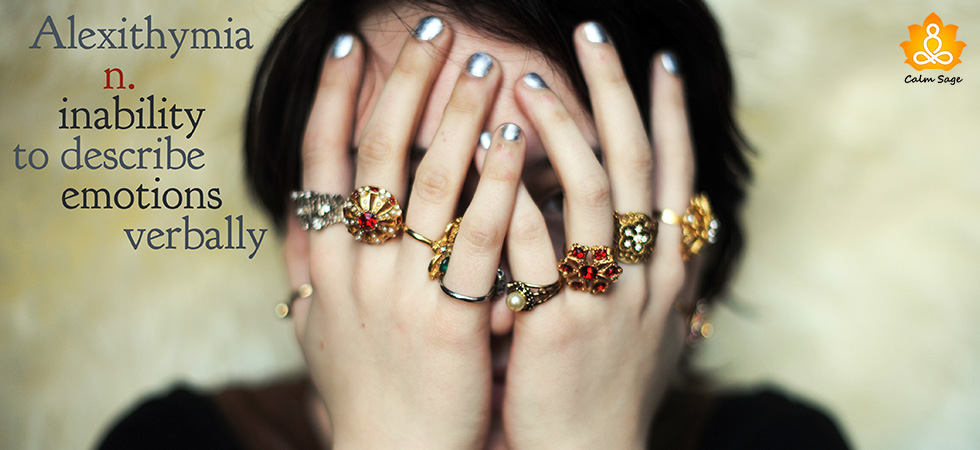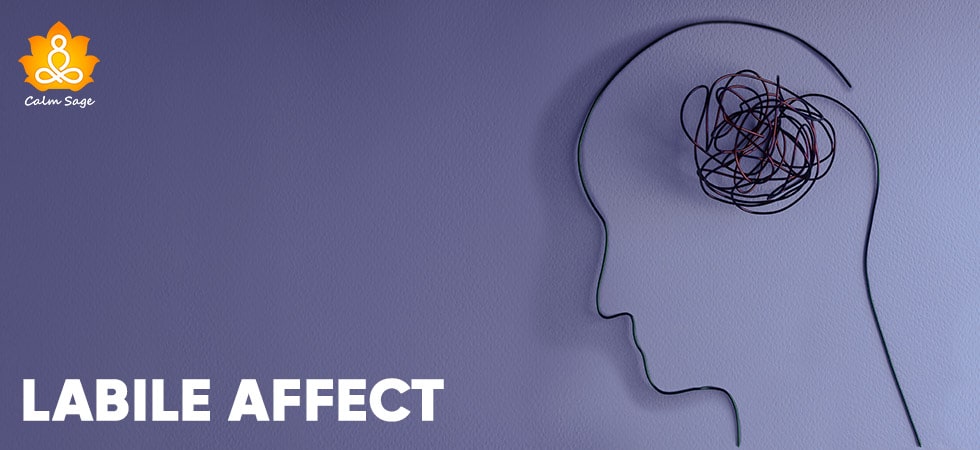Alexithymia: Inability To Express Emotions | Everything You Need To Know

Imagine the following situations:
- You are upset over something and you can’t express it.
- You are filled with joy and happiness but you barely know how to put it in words.
- Someone made you super angry with their actions and are unable to describe how you are feeling.
Something seems off here! No matter what your emotions are you are unable to express them or put them in words. Well, these are not just imaginative situations but a mental health condition- Alexithymia. It might surprise you but 1 in 10 individuals experience it. Alexithymia may give rise to problems in relationships and being a part of social situations. It may even mark the presence of some other mental health condition like- autism, depression, ADHD, and more.
Alexithymia- What Does This Mean
The term Alexithymia was first described by Peter Sifneos at Harvard Medical School. The word comes from Greek where ‘a’ means ‘lack’, ‘lexis means ‘word’, and ‘thymos’ meaning ‘emotion.’ So basically it translates to lack of words for emotions or difficulty expressing one’s emotions.
People with Alexithymia find it difficult to perceive, describe, and understand one’s and others’ emotions. It is also addressed as emotional blindness as matching and distinguishing different emotional facial expressions is also missing here.
Why is Alexithymia Concerning
Three core aspects that define a human being are Thoughts, Behaviour, and Emotions! Experiencing, understanding, and expressing them is important for all areas of life be it work-life, relationships, or self-love. Alexithymia marks lack of one of these core aspects, that is, emotions are certainly a matter of concern. However, some of the key challenges that alexithymic people are likely to face are:
Lack of Empathy: Empathy is all about emotions. An individual with alexithymia lacks empathy which results in problematic social and interpersonal relationships. Especially considering the current times where empathy is a basic social skill, a person with alexithymia might find it challenging.
Poor Relationships: The inability to understand and express emotions may put an individual in the light of being emotionless. This lack of emotional support and understanding is likely to give rise to problems in a relationship.
Association with Other Mental Health Conditions: Alexithymia is found to be associated with other mental health conditions like depression, autism, schizophrenia, ADHD, PTSD, eating disorders, neurodegenerative disorders, and depersonalization disorder. People diagnosed with alexithymia are at higher chances of developing these conditions. Or it can be the other way around where people with these specific conditions are more likely to experience alexithymia in their life. Either way, alexithymia is not linked with mental wellness.
These challenges in particular make the condition of alexithymia concerning.

Causes of Alexithymia
Although the exact cause of alexithymia still remains unknown some researchers have identified a few factors that may be related to it. This includes factors such as:
1. Genetics: People with a close relative having alexithymia are at higher risk of developing it. Research has discovered a genetic component of alexithymia that aligns with the statement above.
2. Brain Injury: According to research a particular brain area when damaged results in a higher level of alexithymia in an individual.
3. Trauma: Some studies have shown that people who are exposed to a traumatizing event early in their life are more likely to display signs of alexithymia.
4. Others: Apart from the three core causes of alexithymia other factors that can put an individual at the risk of the same are:
- Gender: Male are twice more likely to experience alexithymia than females.
- Economic and education status: People with a low level of education and poor socioeconomic background are likely to experience alexithymia in their life.
- Emotional intelligence: People with low emotional intelligence can probably show signs of alexithymia as well.
Signs of Alexithymia
Before we learn about the signs related to alexithymia it is important to note here that it is neither a clinical diagnosis nor a mental health disorder. It is likely to occur alongside some mental health conditions, aiding in diagnosis and treatment. Let us now review the signs of alexithymia in detail.
The three major signs of Alexithymia
People with alexithymia are likely to show these three signs:
- Struggle to observe and acknowledge their own mental and emotional responses.
- Experiencing confusion about the link between emotions and bodily sensations.
- Problems in communicating emotions to others.
Apart from these signs, there are other symptoms of alexithymia to look for. This includes:
- Difficulty in identifying emotions.
- Inability to communicate emotions.
- Unawareness of one’s and others’ emotions.
- A logical and rigid thinking style that misses on the emotional aspect.
- A lack of fantasies, imagination, creativity, and other thought processes that are guided by emotions.
- Poor coping skills to deal with a given situation.
- Appearing humorless, rigid, and distant.
- Lack of sympathy, empathy, and altruism.
- Racing heart.
- Lack of affection.
- Experiencing confusion, discomfort, and emptiness.
The presence of these signs in an individual’s life can be measured through strategically designed tests like The Twenty-Item Toronto Alexithymia Scale (TAS-20) and Bermond–Vorst Alexithymia Questionnaire (BVAQ). However, self-diagnosis is not recommended here. In fact, reaching out for help to a mental health professional, getting your level of alexithymia assessed, and then further learning effective coping strategies, should be the first course of action.
Treatment and Management of Alexithymia
Alexithymia is not a disorder but its treatment and management are recommended to ensure that it does not worsen to develop into a mental health condition or worsen the symptoms of the same. We are sharing the three best treatment plans for alexithymia with you. You may pick any one of them, to begin with, or try them in combination for the best output.
1. Seeking Professional Help: As discussed above the first course of action to deal with alexithymia is seeking professional help. Licensed and trained mental health professionals can help you relearn to identify and express emotions. There are different therapies wherein you get a chance to participate in activities that aid in improving your emotional health. This includes therapies like:
2. Practicing Mindfulness: Paying attention to what is going around you and within you can be one possible step towards developing emotional recognition. Being mindful of your physiological responses like when you see your favorite person or watching an emotional movie can help you become emotionally aware. To start with focus on your heart rate or breath every time you encounter any emotional situation. This way you will be able to monitor and sync your bodily responses and emotions.
3. Maintaining A Diary: Expressive writing is found to increase an individual’s ability to detect emotions. In the beginning, you might find it difficult to write how you feel but you can make use of prompts, answer them, and begin your journey of self-exploration. Or if you do not want to start off straight by identifying your emotions, observe your day and jot it down in your diary. This will help you begin with your writing practice which with time can be directed to emotions.

To summarize it all, alexithymia is not a condition but a diagnosis of underlying mental health conditions. Identifying and resolving it can bring relief in an individual’s life. After all, the ability to identify and describe emotions is the true essence of an emotional and healthy life. So for the sake of your mental wellness, relationship with self and others, start verbalizing your emotions or seek help from a professional. You are sure to feel better soon!
Thank you for reading!




















